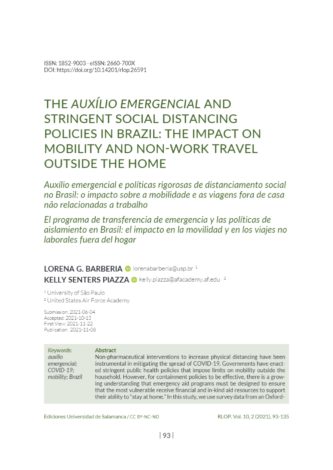ABSTRACT
Non-pharmaceutical interventions to increase physical distancing have been instrumental in mitigating the spread of COVID-19. Governments have enacted stringent public health policies that impose limits on mobility outside the household. However, for containment policies to be effective, there is a growing understanding that emergency aid programs must be designed to ensure that the most vulnerable receive financial and in-kind aid resources to support their ability to “stay at home.” In this study, we use survey data from an Oxford USP-FGV collaborative research initiative to empirically assess the effectiveness of these two policies in reducing mobility with an eye to those at-risk or living in conditions of poverty in eight Brazilian capitals. We learn that, in general, neither stringent public health policies and receipt nor promised receipt of the Auxílio Emergencial were effective in limiting mobility outside of the home. We do, however, find limited evidence that receipt or promised receipt of the Auxílio Emergencial marginally limited non-work trips outside of the home, especially in city/state combinations with stringent public health policies. We conclude by discussing the policy implications of our findings.


